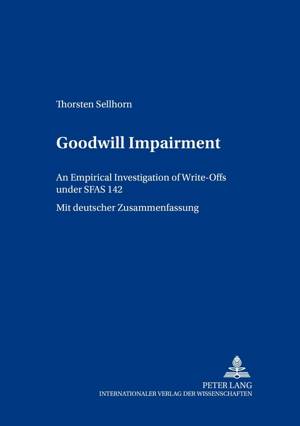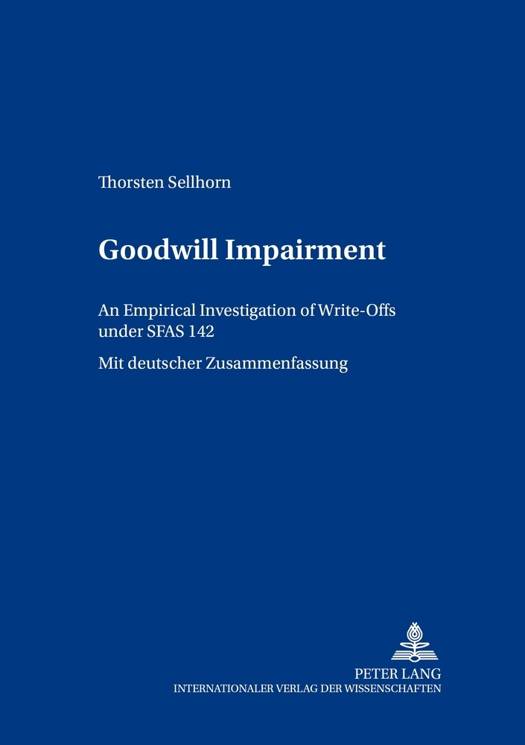
- Afhalen na 1 uur in een winkel met voorraad
- Gratis thuislevering in België vanaf € 30
- Ruim aanbod met 7 miljoen producten
- Afhalen na 1 uur in een winkel met voorraad
- Gratis thuislevering in België vanaf € 30
- Ruim aanbod met 7 miljoen producten
Zoeken
Omschrijving
In 2001, goodwill amortization in the US was eliminated in favor of an impairment-only approach, which, according to critics, gives managers vast discretion and opportunities for earnings management. Prior research suggests that discretionary asset write-offs are associated with economic factors and managers' financial reporting objectives. Based on a systematic literature review, this study investigates for a comprehensive sample of US firms the determinants of goodwill write-off behavior. Regression analysis shows that write-off behavior is significantly explained by firms' economic properties. Only in large, high-profile firms, incentives appear to be significant determinants. These findings suggest that the impairment-only approach does capture goodwill impairment at least to some extent.
Specificaties
Betrokkenen
- Auteur(s):
- Uitgeverij:
Inhoud
- Aantal bladzijden:
- 330
- Taal:
- Engels
- Reeks:
- Reeksnummer:
- nr. 70
Eigenschappen
- Productcode (EAN):
- 9783631527078
- Verschijningsdatum:
- 18/08/2004
- Uitvoering:
- Paperback
- Formaat:
- Trade paperback (VS)
- Afmetingen:
- 170 mm x 240 mm
- Gewicht:
- 599 g

Alleen bij Standaard Boekhandel
+ 219 punten op je klantenkaart van Standaard Boekhandel
Beoordelingen
We publiceren alleen reviews die voldoen aan de voorwaarden voor reviews. Bekijk onze voorwaarden voor reviews.











